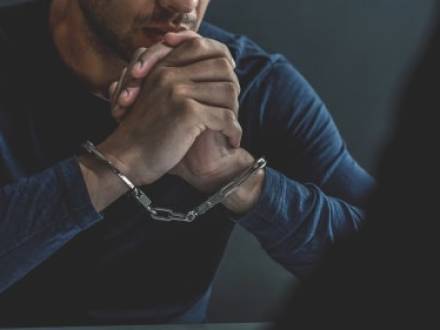Types of Police Errors That Can Result in Dropped Charges
 Being arrested and criminally charged can be devastating. You may feel overwhelmed, unsure of what you need to do to protect yourself and your future, and even frightened that you could end up behind bars. Criminal convictions do not just bring judicial penalties. There are almost always collateral consequences as well, particularly for felony convictions.
Being arrested and criminally charged can be devastating. You may feel overwhelmed, unsure of what you need to do to protect yourself and your future, and even frightened that you could end up behind bars. Criminal convictions do not just bring judicial penalties. There are almost always collateral consequences as well, particularly for felony convictions.
A conviction for a criminal offense can result in difficulty securing employment, problems finding affordable housing, an inability to obtain a professional license or a government student loan, social stigma, financial difficulties, and much more. While it is understandable that you may feel like your world is in a free fall after your arrest, try to remember that not all arrests result in convictions.
Most criminal charges – as high as 90 percent – conclude with a plea bargain rather than a trial. The prosecutor may have a weak case, there may have been errors committed by the police, or the defendant may be a first-time offender with a clean record, which makes the prosecutor more likely to offer a deal.
Of course, your goal after being criminally charged would be to have your innocence proven, to accept a plea deal for a lesser offense or lesser sentence, or to have the charges dropped entirely because of serious police errors. The best way to achieve one of these outcomes is to speak to a knowledgeable Stamford, CT criminal defense attorney who will comprehensively examine the facts and circumstances of your case.
What Are Some of the Most Common Police Errors That Can Result in Charges Being Dropped?
Everyone involved in a criminal investigation can make mistakes. This includes police officers, prosecutors, and even forensic technicians. It takes an extremely experienced criminal defense attorney to quickly identify these errors and have charges dismissed. Spotting these errors requires a deep understanding of the justice system and the legal process. Two of the errors that most often result in grounds for dismissal of charges include:
Lack of Probable Cause and/or Reasonable Suspicion
Although the terms reasonable suspicion and probable cause are often used interchangeably, they are different. Reasonable suspicion allows police to stop and (briefly) detain someone for questioning or to conduct a limited search – like a pat-down for weapons. Probable cause is a higher standard, meaning sufficient facts or evidence would lead a reasonable person to believe that a crime has been committed or is being committed.
Probable cause allows police to obtain a search warrant, conduct a more thorough search, and make an arrest. Many criminal charges begin as traffic stops, but before the police can stop an individual, they must have reasonable suspicion that the person is involved in criminal activity. A hunch or a feeling on the part of police officers does not rise to the level of reasonable suspicion.
For example, seeing a person leave a bar at 2:00 a.m. in the morning does not give a police officer reasonable suspicion to pull that person over. If, however, the person is weaving back and forth over the center line, this provides reasonable suspicion for a stop. Even though there is now reasonable suspicion for the stop, there is not yet probable cause to search the trunk of the car for weapons.
Unlawfully Obtained Evidence or Mishandled Evidence
Individuals are protected against unreasonable searches and seizures under the Fourth Amendment. The police must have a warrant, consent, or exigent circumstances must be present to legally search a property or a person. When evidence is obtained in violation of this rule, it is inadmissible in court. Evidence must also be documented from the moment it is collected until it is presented in court, known as the "chain of custody." When the chain of custody is broken, the integrity of the evidence can be called into question.
Contact a Fairfield County, CT Criminal Defense Lawyer
Navigating the legal system alone can be daunting – and unwise. It is far better for the outcome of your criminal charges to speak to a highly skilled Stamford, CT criminal defense attorney from Law Offices of Daniel P. Weiner who will prepare a comprehensive defense on your behalf. Call 203-348-5846 to schedule your free consultation.







